Website: www.gnb.ca/rdc
Regional Development Corporation
Chancery Place
PO Box 6000
Fredericton, NB E3B 5H1
Telephone: (506) 453-2277
Fax: (506) 453-7988
To provide funding for eligible capital costs of projects in support of youth and family related activities that, without such support, would otherwise not proceed.
This program is administered by the Regional Development Corporation and is designed to complement federal and provincial programs related to youth and family development.
Assistance will be available to non-profit organizations, local service districts and / or municipalities engaged in youth and family related projects such as playgrounds, sports / recreational facilities, community centres and community equipment.
The applicant shall allow any authorized representative of the Regional Development Corporation, at its discretion, to visit the project site to verify that the project has been undertaken and completed in accordance with the program objectives and guidelines.
Assistance under the Family and Youth Capital Assistance Program will be in the form of non-repayable grants. Only one grant is available for each project.
The level of assistance available for eligible capital costs under the Family and Youth Capital Assistance Program will be based on the type of project.
- Playground type projects will be eligible for 100% of the total approved material costs to a maximum level of $15,000. Eligible costs include fixed playground structures and pea gravel. (Operational costs, harmonized sales tax (HST), land costs, machinery, planning, design and labour costs are not eligible costs.)
- All other project types will be eligible for 50% of the total approved project costs to a maximum level of $50,000. Eligible costs include materials, building materials, land preparation, machinery rental, purchase of recreational equipment, and labour associated with the project. (Operational costs, harmonized sales tax (HST), land costs, design and planning costs are not eligible costs.)
To be considered for funding, applicants must complete, sign and forward the attached application form including contractor/supplier estimates of the project costs to the Regional Development Corporation.
An affidavit is required for volunteer contributions (maximum of 25% of the eligible project cost).
Donations of materials, equipment, or services are not eligible to be included in the claim as they are not actual costs incurred (paid out) on the project. Only actual costs incurred and volunteer labour are eligible for reimbursement.
SOCIAL DEVELOPMENT
Website: Visit the website
Wellness Branch
Sartain MacDonald Building
PO Box 6000
Fredericton, NB E3B 5H1
Telephone: (506) 453-4217
Fax: (506) 444-5722
AFTER SCHOOL HOURS INITIATIVES OR ACTIVITIES GRANT
This grant program will provide up to $1000 to support after school hours initiatives that are held during the school year. This program is intended to support affordable opportunities that are offered to all school aged children to be active, pro-social and engaged in fun activities while building positive relationships.
To be considered for funding, programs (eg. community groups and/or organizations, daycares, recreational organizations) must demonstrate after school opportunities for school aged children (5-17 years old) including children with disabilities with a minimum of 3 days per week and a minimum of 2 hours per day during the priority time frame of 3pm – 6pm.
All programs must follow the After School Hours Guidelines provided.
Programs must clearly identify opportunities in ALL 4 components as outlined in the After School Hours Guidelines:
- Physical activity
- Healthy Eating
- Community Strengths
- School Work/Homework
Programs must clearly identify partners and build on community assets.
Only one application per organization will be accepted.
If there is an enhancement in the initiative and the activity report has been submitted, a second grant may be given to the same organization.
SCHOOL WELLNESS GRANT
To encourage and support New Brunswick schools to contribute to the wellness of their students and their community.
These grants are available to all Public Schools and First Nations’ Schools in New Brunswick with students in grades kindergarten to twelve.
The grants provide financial resources to schools to support the implementation of Comprehensive School Health (CSH) approaches to increase mental fitness, healthy eating, physical activity and tobacco free living among their students and within their community. See link below for more information on CSH.
The application process guides schools through best practices in community mobilization such as identifying an action team, using data to identify a current problem in the school, developing a CSH approach to address that problem, identifying possible evaluation criteria, etc.
Grants are available on an annual basis. The application is typically open from mid-April to the end of May. Grant funding is distributed in 2 amounts, 70% in September and 30% in April.
WELLNESS LEARNING OPPORTUNITIES GRANTS
One time grants for conferences, workshops, presentations that enhance wellness in the province of New Brunswick.
To be considered for funding your initiative must align with the Wellness Learning Opportunities Grant Program in the following ways:
- Must focus on building capacity on wellness by demonstrating impact on at least 1 key focus area:
- Mental Fitness and Resilience
- Healthy Eating
- Physical Activity
- Tobacco Free Living
- Contribute to the goals of the Wellness Learning Opportunities Grant program which are:
- To increase awareness of, participation in and adoption of long term healthy lifestyle behaviors.
- To increase capacity to create environments in support of mental fitness and resilience, healthy eating, physical activity and tobacco-free living
- To build knowledge and / or skills to support long term action
- To engage new partners who will initiate or enhance efforts in wellness
- Embrace a Mental Fitness approach in the planning and the delivery of the wellness initiative (using the CAR Model to ensure that basic psychological needs are met: Competence, Autonomy and Relatedness)
- Priority will be given to initiatives that involve one or more of the following groups: youth, seniors, people living in poverty, people with disabilities.
For more information, see their Application Guide.
